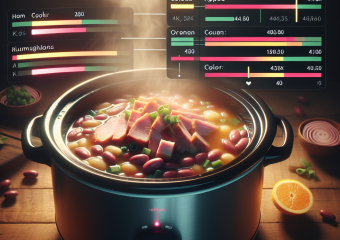Warning to anyone who eats junk food as expert shares ‘devastating’ message – Yahoo News UK

Health experts have issued a warning over ultra-processed junk food. The impact of the unhealthy diets will be more devastating than that of tobacco, it has been claimed.
The impact will only be fully appreciated in decades to come, medics have warned. Some nutritionists have likened companies selling fat, sugar and salt laden products to those peddling cigarettes in the 1950s.

Doctor and academic, Chris van Tulleken, said: “To get effective regulation after the realisation cigarettes cause lung cancer was a journey that started in the late 1950s but took fully 60-years. We basically have an unregulated environment where the food industry has near total control over messaging, like tobacco.
READ MORE: Enter our £1,000 Aldi voucher giveaway and go wild in the aisles

Get breaking news on BirminghamLive WhatsApp
“There are many similarities between ultra-processed foods and tobacco products in terms of health harms and the companies that make them. It’s both a tragedy and a catastrophe and until we see regulation these global giants will continue to profit from harm.”
As many as 10 million Brits are now thought to be hooked on junk food, The Express reports. And by 2030, the UK is set to become Europe’s fattest country with 37 per cent of adults obese, according to the World Health Organisation (WHO).

By 2040 estimates suggest more than 21 million UK adults will be obese which is almost 4 in 10 of the population.

“It’s time for the WHO to recognise certain foods, such as refined sugars, grains and ultra-processed foods like fast foods and doughnuts, can be addictive and cause misery for millions,” Dr Jen Unwin said.
“The problem isn’t real, whole foods, but highly-processed sugars and flours and the irresistible combination of sugar, starch, fat and salt. Just like alcohol 10-20 percent of adults will develop an addictive relationship with certain foods.
“That’s between 5 and 10 million people in the UK. And rates are already higher in our younger people. It’s a health disaster in the making. It’s already happening.
“Until we recognise processed foods are addictive we will never solve the obesity and mental ill health epidemics in the UK and internationally. Standard advice to eat less and move more has failed – we need a new way of looking at this issue.”
A growing number of experts argue food addiction positively correlates with body mass and eating disorders and properly classifying it would mark the most significant public health intervention since tobacco was linked to cancer.
Ultra-processed foods have been found to make up more than half the average diet in the UK and US. The European Society of Cardiology has suggested consuming them could increase the risk of cardiovascular disease by almost 25 per cent.
Dr van Tulleken continued: “We are living in a chronic emergency and here in Britain have some of the worst dietary health in the world. Poor diet has overtaken tobacco as the leading global cause of early death.
“The violence of the food environment is poorly understood by the public. Diets high in ultra-processed food increase rates of cancer, dementia, anxiety and depression, heart disease, strokes, inflammatory disease and, of course, weight gain and obesity.
“Until we start to understand that the food industry is like the tobacco industry we will never solve this problem. We simply cannot afford the cost of diet-related disease. Addiction is widespread but it has nothing to do with willpower. It’s food driving the pandemic of obesity.”
Obesity now costs the NHS around £58 billion a year. The five most problematic foods are said to be pizza, chocolate, crisps, biscuits and ice cream.
Dr Vladimir Poznyak, of the WHO’s Department of Mental Health and Substance Use, added: “There is not sufficient evidence to qualify the over-consumption of ultra-processed foods as a substance use disorder. While some attempts have been made to analyse sugary products and addiction, it remains difficult to prove dependence on products like sugars, lipids and proteins, which, unlike psychoactive substances (such as opioids), are also part of the human diet.”




